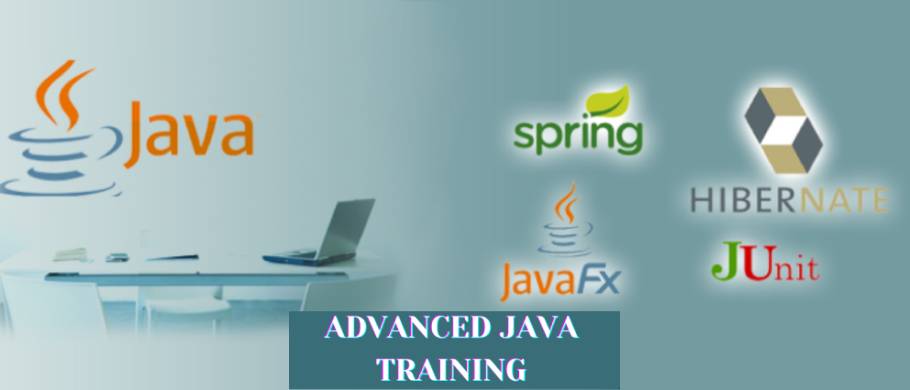
As per Wikipedia, Java is a class-based, object-oriented programming language that is designed to have as few implementation dependencies as possible. It is a general-purpose programming language intended to let application developers ‘Write Once, Run Anywhere (WORA), meaning that compiled Java code can run on all platforms that support Java without the need for recompilation. Java applications are typically compiled to bytecode that can run on any Java virtual machine (JVM) regardless of the underlying computer architecture.
Java has been subcategorized into two parts, i.e. Core Java and Advanced Java. They can also be referred to as Java Platform, Standard Edition (J2SE), and Java Enterprise Edition (JEE) respectively. While Core Java covers the rudimentary concepts and principles of the Java Programming Language, Advanced Java covers the standard concepts and generally deals with the online application. Core Java’s fundamentals include data types, functions, operators, loops, thread, exception handling, etc. whereas Advanced Java’s standard concepts include database connectivity, networking, Servlet, web-services, mobile, and web application, etc.
In this segment, we will discuss Advanced Java Programming and what are the benefits of learning it.
Advanced Java is an advanced technology/advanced version of Java specially designed to develop web-based, network-centric, or enterprise applications. It is a part of Java Programming Language and includes concepts like Servlet, Jakarta Server Pages (JSP), Java Database Connectivity (JDBC), Java Remote Method Invocation (RMI), Socket programming, etc. It essentially has a specialization in specific domains. Most of the applications developed using advanced Java uses tow-tier architecture i.e. Client and Server. Almost all the applications that run on the Server can be considered advanced Java applications.
Key Features of Advanced Java:
- Advanced Java (JEE) simplifies the complexity of a building n-tier application.
- It standardizes an API between components and application server containers.
- JEE Application Server and Containers provide the framework services too.
Key Benefits of Advanced Java:
- Advance Java provides libraries to understand the concept of Client-Server architecture for web-based applications which Core Java doesn’t support.
- Unlike in Core Java, we can work in JEE with web and application servers such as Apache Tomcat and Glassfish that can help us understand the working of HTTP protocols. This isn’t possible with J2SE.
- Working in trading technologies like Hadoop, cloud-native, and data science go at ease if you know Advanced Java.
- There are diverse Core Java frameworks such as Spring, Hibernate, Struts that endow us to develop secure transaction-based web applications such as banking applications, inventory management applications, etc.
- JEE provides a distinct set of services, API (Application Programming Interface), and protocols that provide the functionality which is necessary for developing a multi-tiered application, web-based application.
Difference Between Core Java & Advanced Java:
| Core Java | Advanced Java |
| In developing general-purpose applications | Helps in developing web bases applications |
| It is the first step to Advanced Java. Without J2SE, nothing can be developed through JEE | Deals only in specific and specialized domains like Database, DOM (Web), networking, etc. |
| Core Java is also called a ‘stand-alone’ application as it uses only one-tier architecture. | Advanced Java uses two-tier architecture i.e. client-side architecture and server-side or backend architecture |
| Core java programming covers the swings, socket, awt, thread concept, collection object, and classes. | Particularly used for enterprise application and web-based application |
Java Web Application Technologies:
A Web Application facilitates clients to interact with the server and retrieve information. Java is great in developing large web applications due to its ability to communicate with a large number of systems.
The following are some prominent Java Web Application Technologies that can be used to create Java Web Applications:
- Servlet API
- JSP
- JDBC API
- Java Persistence API
- JavaServer Faces Technology
A career in Java:
The Java aspirants can consider the following as career options:
- Junior Developer
- Senior Developer
- Architect
- Java Web Developer
- Java Android Developer
- Java EE Developer
There are numerous career opportunities available and it just needs the right spirit and dedication to perform. A fresher can work as an independent freelancer too.
The growth of a man does not depend on the degree but the potential of a man. Similarly, the progress of a skilled and knowledgeable person grows leaps and bounds. Being said that, the average salary of a fresher Java Developer in India can be around ₹ 6 Lakhs p.a. whilst, an experienced coder can earn around ₹30-35 Lakhs p.a.
About Unique System Skills LLC:
We at Unique System Skills India Pvt. Ltd. are one of the most established and recognized Software Training institutes in Pune (particularly in the field of Java/Python). With more than 1000+ students already enrolled since started, and a record-breaking academic performance on the list year-on-year, we have kept our promise to deliver the quality and trust our name carries with its legacy.
Established in the year 2008, with the presence in over 8 locations, our team of experts are among the chose few gems who ardently believe in the potential of our students and nurture their growth through time and practice. Results come along. We take note of every possible step that could shape your future, and yes, we help you grow to become what you think of yourself.
Hurry, enroll yourself now!
